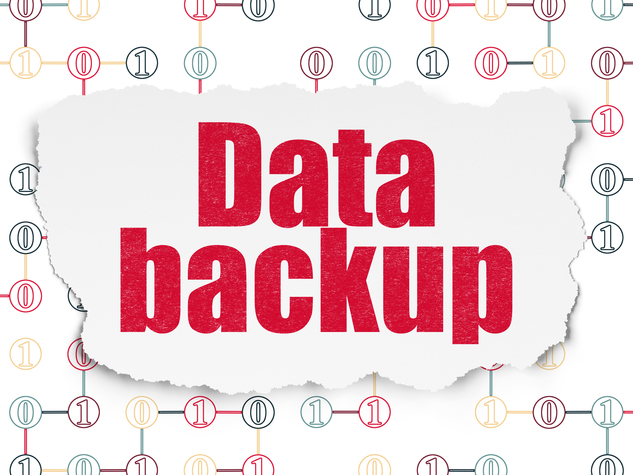It’s Obvious You Need to Backup Your Files, But Are You Doing It Right? Here’s Some Advice That Can Help You Avoid Disaster…
Just imagine that something happened and caused you to lose all the critical information for your business that you have saved on your in-house server. While there’s a lot of ways this can happen (hardware failure, accidentally deleting files, or an act of God, for instance), the real question is “What do I do now?” Well, if you’ve been properly backing up your data then you shouldn’t have actually lost any information, and restoring your server won’t be a problem. Alternately, if you haven’t stuck to the recommended best practices for backing up your systems, you could have a lot of trouble on your hands.
Why Do You Need To Backup?
Well, let me ask you a question: Why wouldn’t you backup? It’s obvious that if you don’t have your data backed up when something happens, it could be a disaster for your business. In my experience, most people don’t backup their files because they believe “it won’t happen to me” and as long as the computer is running fine, it’s not a problem. I’ve found that even when people know that it’s important, they somehow never seem to have the time and they just put it off until it’s too late. Or, even worse, they want to backup their files but don’t because they don’t know how or they are just not willing to spend the money for IT support. Considering that a data disaster could severely cripple your business or destroy it entirely, properly backing up your data is well worth the investment.
Onsite Backup
First, onsite backup means that you are essentially copying your critical files and physically storing them on an actual device which is kept in the same location as your business. Local backup protects you from accidentally deleting a file (the “Oops Factor”) or if a disgruntled employee or former employee maliciously deletes your important files, since you can always recover the same file from your onsite storage device. Most often though, businesses use onsite backup to clone their whole system over their network to keep their data protected in case of a hard drive failure on one of their computers.
In terms of media, most people use an external hard drive storage device or even a USB flash drive to manually copy and paste their files for backup, but you can also backup over your network to another computer, a Network Attached Storage (NAS) device, or your in-house server. You can choose to either clone your whole system, in case there’s a hard drive error disaster, or just backup certain files. For Windows 7, the factory-installed “Backup & Restore” program will clone your system so your files can easily be restored in the event of a disaster. However, if you’re just looking to backup specific files that are critical in your business, there is a program called Cobian Backup which is available for free download, among others.
Offsite Backup
Just performing a local backup is not enough though because, wherever you keep your local storage, it is still susceptible to fire or flood damage, or your device could even be stolen or lost. That’s why it is important to also backup your files offsite, but I want to stress that properly backing up your data means performing both onsite and offsite backups – not “one or the other”. For offsite backup, you basically have two options: either you store your data on some sort of USB device and physically store it in another location, or you backup your files to the cloud.
If you’re using a USB device, like a portable external hard drive or flash drive, keep in mind that the physical location where this hardware is stored must be secure, like in a safety deposit box, and that the information on your device is (at least) password encrypted. However, the current trend that I’ve noticed is that several of my clients are choosing to backup their systems online and avoid the hassle of maintaining a physical offsite storage device. While there are plenty of cloud storage services to choose from, some are better than others. Here’s a few things to look for when you’re choosing an online backup service:
How Often Should You Backup?
This is really a matter of preference, some people may backup daily, every other day, weekly, or even monthly. Like I said, people have their own preference. Aureus Consultants best practice for backing up is at least once a day. I don’t care if you’re backing up files, if you’re cloning a machine, or if you’re doing an incremental type of a backup, you should backup at least once a day. A lot can change in a day and, if you’re only backing up once a week, you could potentially lose a big chunk of data that’s critical to running your business.
Things to Consider
Look, you can’t predict the future and you never know when something might happen that could cause you to lose some or all of the critical information that you depend on to keep your business running smoothly. I mean, just imagine that you lost all of the data connected to your QuickBooks in the blink of an eye. Good luck with that! That’s a disaster, but it happens. Or even some other database that’s important for your business, if it gets corrupted and you don’t have a backup of that, it could be completely lost. Trying to replace all of that data could really set you back or, even worse, put you out of business. Why take the risk?
The bottom-line here is that backing up is critical, and there really aren’t any good excuses for not backing up. Remember that onsite backup, on its own, is not enough to safeguard you from losing your critical data, if you’re not also performing regular offsite backups. Just don’t forget to monitor your backups and make sure they’re actually working the way they’re supposed to – don’t just set it up and assume it’s working without a test restore. If you have questions about which backup solutions would work best for your business, ask your local IT expert.
about the author
Ashley Smith-Jenkins
Ashley has vast experience in the information technology field relating to computer and network services, including web development. For the past 20 years, Ashley has provided computer consulting and implementation for his customers. Ashley’s educational experience includes a Bachelor’s in Business Administration at the California State University of Fresno, as well as a being a Fluke Networks Certified Cabling Test Technician (CCTT), and CompTIA A+ Certified. | LinkedIn






